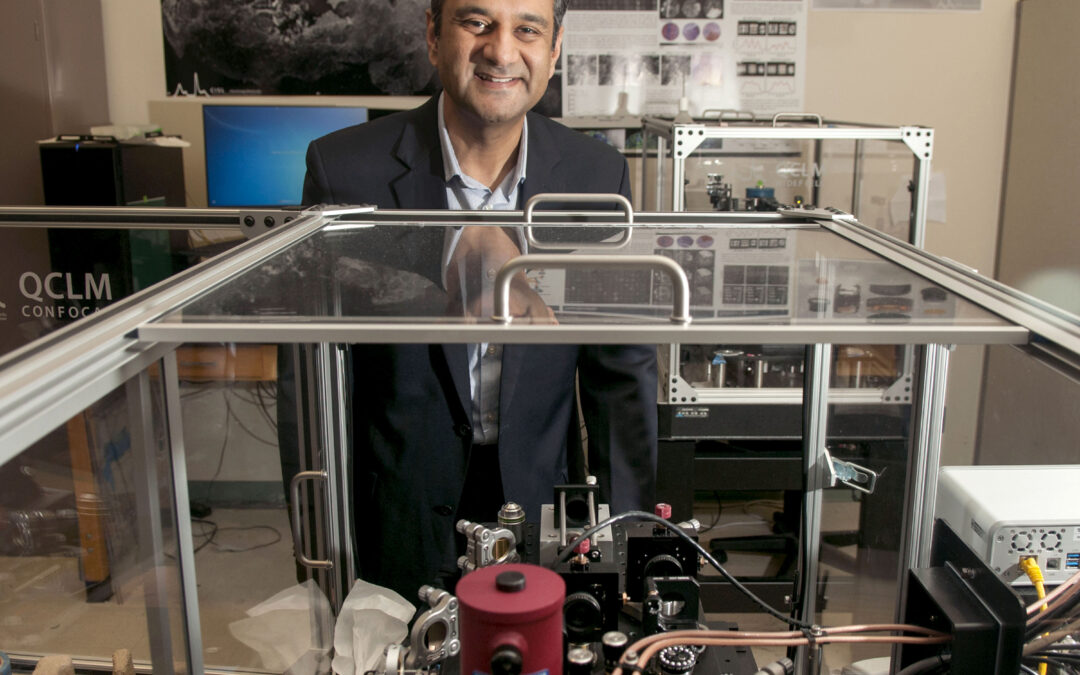Image of Rohit Bhargava
Cancer. The word can evoke fear in anyone, and its diagnosis can come like a thief in the night. The American Cancer Society reports that nearly 1 out of 3 people in the United States will develop some form of cancer in their lifetimes. While many strides have been made in the treatment and diagnosis of cancer, the 21st century promises to deliver a significant leap forward. And all signs point to engineering being at the center of those advances.
The good news is that the University of Illinois at Urbana-Champaign has a critical mass of researchers—both in natural sciences and engineering—committed to leading the way in finding next-generation solutions to cancer and other medical challenges.
Last summer, the University opened the Cancer Center at Illinois, an interdisciplinary collaborative center directed by Rohit Bhargava, Founder Professor in Bioengineering. The Center brings together more than 90 faculty members plus undergraduate and graduate students, as well as postdoctoral researchers from across campus, to pursue cancer-related research.
In 2014, Bhargava introduced the Cancer Scholars program, which is enhancing the educational experience for a cohort of undergraduates in bioengineering through the lens of cancer. Supported by the College of Engineering, this program inspires students by integrating research with their education. Cancer is also a topic for an innovative program at the high school level, where the University brings together high school students from the Chicago area and Champaign-Urbana for an eight-week cancer-focused research and career development experience called researcHStart.
In the fall of 2018, the University will pioneer the first-of-its-kind, engineering-based Carle Illinois College of Medicine by receiving its first class of students, who will lead the next generation of innovation in cancer treatment and research.
“In the near future, we will need scientists and clinicians who will invent those tools and interventions that transform health care,” said Bhargava of the paradigm shift. “This is a new way to think about medical education and it’s really a new way to think about the future of medicine.”
Our extensive knowledge about cancer has primarily developed over the past couple of generations. This is because prior to the last century, life expectancies didn’t allow for many forms of cancer to matriculate. Additionally, in recent years, the scientific community has gained access to more of the tools and technologies needed to understand cancer and its progression more clearly.

